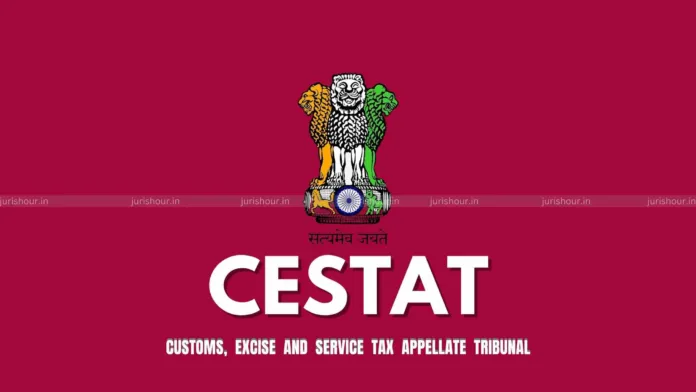The Chennai Bench of Customs, Excise and Service Tax Appellate Tribunal (CESTAT) has expressed the anguish over disrespectful language in appeal memorandum and has warned against derogatory pleadings.
The bench of M. Ajit Kumar (Technical Member) has observed that the Appeal Memorandum contained language which shows a lack of respect / disrespect, for the First Appellate Authority and also contained unsolicited advice to the Tribunal on the mode of disposal of the dispute. While an erroneous statement may inadvertently creep into a pleading, it cannot happen repeatedly. The expression of disrespect or advice has no place in an appeal memorandum or pleading.
The bench remarked, “the averments are contained in an appeal filed by the appellant under legal advice and statedly with a ‘great sense of responsibility’. Responsibility in such matters to my mind should involve propriety and greater restraint. While the appellants averments appear to suggest their own infallibility, I find that Justice Robert H Jackson of the United States Supreme Court, in Brown Vs Allen [344 U.S. 443 (1953)] has acknowledged the fallibility of even the Supreme Court while stating, “We are not final because we are infallible, but we are infallible only because we are final.” The appellant may do well to ruminate on the Latin phrase Nemo judex in causa sua (or Nemo judex in sua causa) which literally means, “no-one is a judge in his own cause”.
The appellant/assessee had imported 18292.2 kgs of “100% Rayon Filament Yarn Bright Raw White on cake 120D/30 Finance Act, 1994 Grade’. They had previously imported another consignment of “Viscose Rayon Filament Yarn” vide Bill of Entry. In both cases, the goods imported were classified under CTH 5403 3100 of the Customs Tariff Act, 1975. The impugned goods had been imported from M/s. Hitansh Global Viscose P. Ltd. Singapore.
In the bills of entry, the appellant had claimed exemption from payment of Anti Dumping Duty (ADD), @ USD 4.77 per kg as stipulated under S. No. 7 of Notification No. 81/2009-Cus dated 13.7.2009 for the said imported goods. The Directorate of Revenue Intelligence, Tuticorin (DRI), allegedly received information that ‘the importer’ was evading ADD, by declaring a rate less than the bench mark rate of 5.20 USD/Kg fixed for such imports under Sl. No.25 of the notification 81/2009 Cus dated 13.07.2009. Investigation allegedly revealed that the producer- manufacturer of the said imported goods were from China and the exporter-supplier was from Singapore and hence it appeared that the appellant is not eligible for ADD at USD 4.77 per kg and they are liable to pay ADD at USD 5.20 per kg.
The Original Authority rejected the ADD at USD 4.77 per kg and redetermined the ADD at USD 5.20 per kg and demanded differential ADD of Rs.7,17,199/- with interest and imposed penalty under sec. 114A of the Customs Act, 1962. On appeal, the Commissioner (Appeals) vide Order in Appeal No. 04/2013-TTN (CUS) dated 28.1.2013 remanded the matter with a direction to grant adequate personal hearing to the appellant.
The adjudicating authority, after following due process of law, has rejected the ADD payable declared by the importer and redetermined the same. The adjudicating authority has also imposed a redemption fine of Rs.50,000/- on the appellant in lieu of confiscation under the provisions of section 125 of the Customs Act, 1962. The appellant preferred an appeal before the Commissioner (Appeals) who rejected the appeal.
The appeal memorandum stated that the appellants with a great sense of responsibility submit that it appears that the Lower Appellate Authority does not have even the rudimentary knowledge of Customs Law and the adjudication process and it is because of such lack of knowledge that Lower Appellate Authority has passed the order under challenge and on this score alone the order under challenge deserves to be set aside in its entirety, with consequential relief to the appellants.”
The tribunal held that an appellant can reasonably expect an appeal to be disposed of in his favour on the strength of the weighty legal arguments taken in the pleadings and not by the ‘weight’ of the disrespect shown to the authorities deciding the dispute.
Case Details
Case Title: Shanti Rayons India Pvt. Ltd. Versus Commissioner of Customs
Case No.: Customs Appeal No. 42629 of 2014
Date: 06.06.2025
Counsel For Appellant: J. Shankarraman
Counsel For Respondent: Sanjay Kakkar
Read More: Copper Importers Face Heat as Customs Launches Crackdown on ASEAN Duty Evasion

